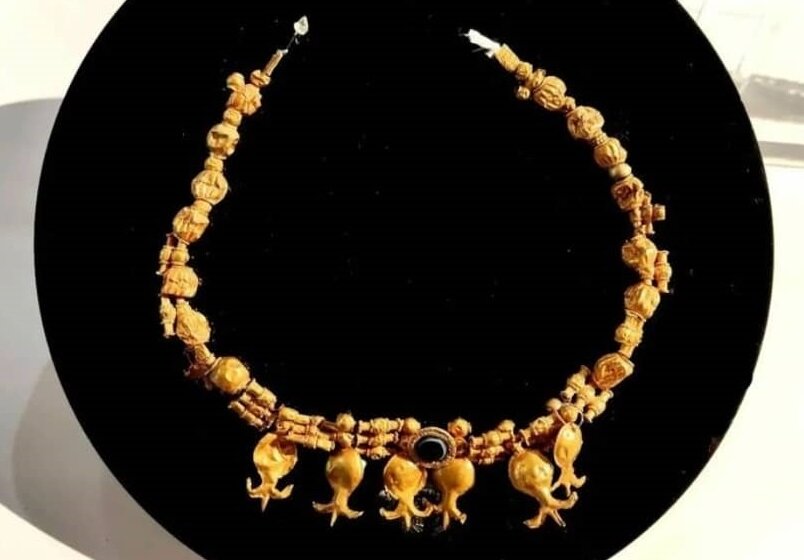National Museum showcases artifacts bearing pomegranates as focal theme

TEHRAN– The National Museum of Iran has launched an exhibition on the theme of the pomegranate, which has long been a delicate cultural element in the Iranian plateau.
“The exhibition features 26 artifacts dating from the Iron Age to the Qajar era,” the museum’s director Jebrael Nokandeh said on Wednesday.
The exhibit marks the recent registration of Yalda/Chellla on UNESCO’s Representative List of the Intangible Cultural Heritage of Humanity.
This collection presents the role of pomegranate motives in different periods and indicates the value of this heavenly fruit in ancient Iranian culture, Nokandeh explained.

“The appearance of pomegranates in the golden ornaments from archaeological sites such as Marlik, Amarlo, and Joban in Gilan province has given a unique shine to the exhibition space.”
Referring to the importance of pomegranates in Islam, Nokandeh said: “Considering that pomegranates are mentioned in three verses of the Holy Quran, the display of three magnificent manuscripts of the Holy Quran with Surahs Anam and Al-Rahman, decorated with the name the pomegranates are on display.”
In addition, the exhibit showcases a manuscript titled “Wonders of Creatures and the Marvels of Creation” along with a description depicting its connection with pomegranates.

The exhibition will be running through January 21, 2023, according to organizers.
Many Iranians believe the best fruit to eat on Yalda, which marks the longest and darkest night of the year, is undoubtedly pomegranates, which in Persian culture are symbolic of fertility, rebirth and life.

Pomegranate is native to Iran and eastward up to north India. It is widely cultivated in most provinces of Iran, with different colors, sizes, and flavors. It is impressive to see the variety of pomegranates in the country. The ancient land is well-known for the quality of pomegranates and is the largest exporter of pomegranates in the world.

Ancient Iranians believed that the pomegranate was a sign of fertility due to its abundant seeds. It is a high pillar of festivities on Yalda night. Narratives say the presence of pomegranates symbolizes blessings for a new life. The number of seeds scattered indicates how many children a young woman may give birth to!
By tradition, Zoroastrians offer pomegranates to their daughters and sons when they get married, wishing them fertility. Moreover, they used to burn pomegranate sticks during religious rites.
In addition, the pomegranate has long been one of the essential ingredients for Persian cuisine to bring a kind of balance, taste, and flavor.
AFM
Leave a Comment